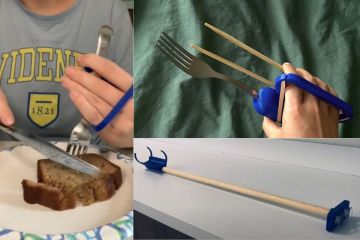Widener Receives Grant to Aid in Ending Sexual Assault

As sexual assault remains a pervasive national problem, Gov. Tom Wolf recently awarded Widener University and 37 other colleges and universities in Pennsylvania the “It’s On Us” grant to develop more programming to end sexual assault on campuses.
The $30,000 grant will support programming and materials that have been proven to aid in prevention and awareness of sexual assault during new student orientation and throughout the academic year.
“One of the things that’s exciting about this grant is that it gives you the opportunity to tier the messaging and the education throughout the students’ experience – not just during orientation, which is what typically happens,” said Associate Vice President for Human Resources and Title IX Coordinator Alison Dougherty.
Widener’s grant was secured by Dougherty and Director of Sponsored Research and Foundation Relations Joe Matassino, with collaboration from Director of Athletics Jack Shafer, Interim Dean of Students Catherine Feminella, and Vice President for Strategic Initiatives and Chief of Staff Katie Herschede. The group worked together to develop the “It’s On Us: Widener Cares” campaign, which stems from the university’s “We’re All Widener” commitment to community inclusion and diversity.
Widener’s campaign will take a multi-layered approach of educating students on sexual assault and prevention, while also sharing options for confidential and anonymous reporting.
With this grant, the university will be expanding materials to resident students, student athletes, the graduate population, international students, and recognized organizations. The expanded materials will focus on reporting, resources on and off campus, and educational programs spread throughout the academic year.
“Anytime you get the opportunity to benefit from more resources around this type of messaging and the number of people it can affect and connect with, we are all for it,” Shafer said.
Along with events on campus, the university will work to create an informational video, directed by and starring a variety of students, and have faculty and staff take part in Bystander Intervention Training to better understand the extent of previous trauma when working with students.
Feminella is pleased that the university will have materials that are informational and accessible.
“It’s hard for students to know how to feel comfortable in reporting because it’s such a sensitive topic,” she said. “When the information is difficult to digest, students are less likely to approach it or don’t know who to talk to. Because of the topic, we need a level of trust and to have that legal speak turned into language that is more accessible.”


